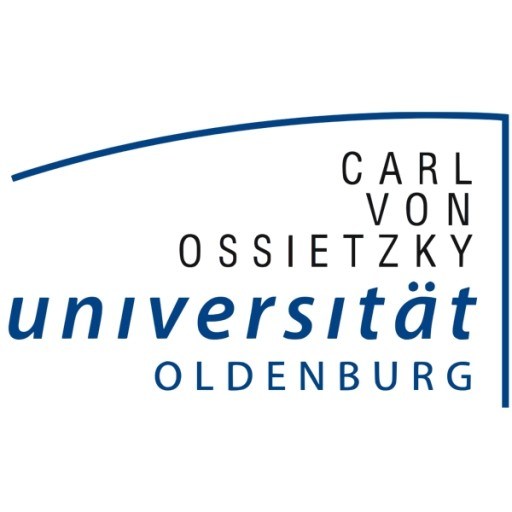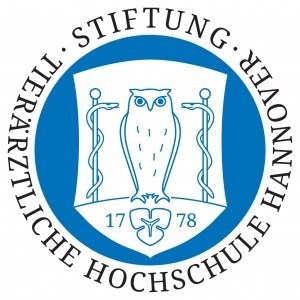Photos of university / #Norduniversitet
Marine Ecology at Nord University offers a comprehensive and multidisciplinary education designed to equip students with the scientific knowledge and practical skills necessary to understand and address the complex issues facing marine environments. This program focuses on the interactions between marine organisms and their habitats, exploring ecological processes, biodiversity, and the impacts of human activities such as pollution, overfishing, and climate change on marine ecosystems. Students will gain a solid foundation in marine biology, oceanography, environmental science, and conservation methods, preparing them for diverse careers in research, environmental management, policy, and industry. The curriculum includes both theoretical coursework and hands-on fieldwork, enabling students to develop practical skills in marine sampling, data analysis, and ecological modeling. Through internships, research projects, and collaborations with marine organizations, students will have opportunities to apply their knowledge in real-world settings and contribute to sustainable management of marine resources. The program emphasizes critical thinking, scientific communication, and interdisciplinary approaches to solving marine environmental challenges. Graduates will be well-equipped to work in governmental agencies, NGOs, research institutions, or maritime industries, promoting the preservation and sustainable use of marine ecosystems. With Norway’s rich maritime landscape and strong emphasis on environmental stewardship, the Marine Ecology program at Nord University offers students a unique chance to participate in innovative research and make a meaningful impact in safeguarding our oceans for future generations.
The Marine Ecology master’s program at Nord University offers a comprehensive and in-depth exploration of marine ecosystems, their inhabitants, and the environmental challenges they face. Designed for students with a background in ecology, marine biology, environmental science, or related fields, this program aims to equip graduates with the knowledge and skills necessary to understand and address complex issues related to the marine environment. Throughout the coursework, students will study a wide range of topics including marine biodiversity, ecological processes, oceanography, marine conservation, and sustainable management of marine resources. Emphasis is placed on both theoretical understanding and practical applications, with opportunities for fieldwork, laboratory analysis, and research projects. Students will learn about the impacts of human activities such as fishing, pollution, and climate change on marine habitats and species. The program encourages critical thinking and problem-solving skills, preparing students to work in research, environmental consultancy, conservation organizations, or policy-making bodies. In addition to core courses, students can choose specialized elective modules to tailor their education to specific interests within marine ecology. The program also promotes interdisciplinary approaches by integrating knowledge from related fields such as oceanography, geography, and policy studies. Throughout the two-year curriculum, students will engage in hands-on research and collaborate with local marine research institutions, gaining valuable experience in data collection, analysis, and interpretation. The culmination of the program is a master’s thesis, where students will conduct original research on a topic of their choice, contributing to the scientific understanding of marine ecosystems. Graduates of this program will be well-prepared to pursue careers in marine research, environmental monitoring, marine resource management, or further academic study. The program is conducted in English and leverages Nord University’s strong connections with research communities and industry partners, ensuring that students are well-equipped for the global challenges facing our oceans today.
The Marine Ecology master's program at Nord University offers diverse financing options for prospective students. Tuition fees vary depending on the applicant's nationality. For international students, the tuition fee is approximately €8,000 to €10,000 per academic year, while Norwegian and EU/EEA students pay no tuition fees due to the Norwegian government’s policy of free higher education for residents. However, students are responsible for living expenses, which include accommodation, food, transportation, and study materials. Living costs in Norway are estimated to be around €10,000 to €12,000 per year, depending on lifestyle and location.
Nord University provides several scholarship opportunities for international students to offset tuition costs. These scholarships are highly competitive and typically awarded based on academic merit. Applicants are encouraged to submit a scholarship application as part of their admission process. Additionally, Norwegian students and students from the EU/EEA can explore government grants and loan schemes through the Norwegian State Educational Loan Fund (Lånekassen), which offers financial support for tuition and living expenses.
Students also have the possibility to fund their studies through part-time employment, which is permitted under Norwegian regulations. International students can work up to 20 hours per week during the semester and full-time during holidays, helping to cover living expenses. Some students may also seek external scholarships from their home countries or international organizations.
Nord University supports students in finding and applying for various funding sources through its dedicated student services and international office. Moreover, students can consider loan programs from their home countries or private lenders. It is advisable to plan a comprehensive budget that includes tuition fees, insurance, accommodation, and daily expenses.
In summary, the financing of studies in Marine Ecology at Nord University involves a combination of tuition fees (mainly for non-EU/EEA students), scholarships, government grants, part-time work opportunities, and personal savings or loans. Norway’s education system is designed to promote accessibility and support for students, facilitating international study experiences without tuition fees for many, but with significant living costs that need to be carefully planned and secured.
The Marine Ecology program at Nord University offers students a comprehensive education in the biological and ecological processes of marine environments. This degree aims to develop specialized knowledge and practical skills necessary for understanding the complex interactions within marine ecosystems, including the impacts of human activities and climate change. The program combines theoretical coursework with practical fieldwork, laboratory experiments, and research projects to provide students with a broad and in-depth understanding of marine biodiversity, oceanography, and conservation strategies.
Students will study subjects such as marine biology, ocean chemistry, marine resource management, and sustainable practices. The program emphasizes interdisciplinary approaches, integrating ecology, biology, and environmental sciences to address real-world challenges in marine environments. Courses are designed to foster analytical thinking, problem-solving skills, and the ability to conduct independent research. Students have opportunities to participate in field excursions, sampling campaigns, and internships with marine research institutions or conservation organizations.
Graduates of the Marine Ecology program are prepared for careers in marine research, environmental consultancy, marine resource management, and conservation policy. They may also work with governmental agencies, non-governmental organizations, or private sector companies involved in marine industries. The program is intended for students passionate about marine environments and committed to advancing sustainable practices to protect ocean health.
The program is delivered predominantly in English to facilitate international collaboration and exchange. It includes both classroom instruction and practical sessions, with state-of-the-art laboratories and research facilities available for student use. Nord University’s location by the coast provides unique opportunities for hands-on learning and field research directly in marine settings. The duration of the program is typically three years for the Bachelor's degree, with options for further specialization or postgraduate studies.
Overall, the Marine Ecology program at Nord University aims to prepare motivated students to become skilled professionals dedicated to the preservation and sustainable management of marine ecosystems, addressing some of the most pressing environmental issues facing the world today.










